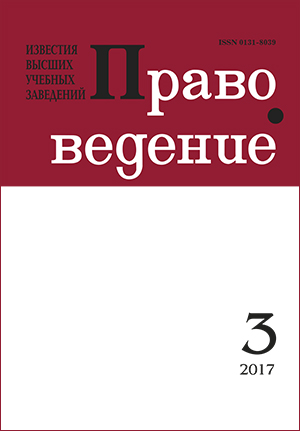General theory of normative institutional legal systems
Abstract
Concerning the need for a new conception of legal theory one question arises, above all, especially when external and internal observation as well as the critical reflexion of the premises and presuppositions of all dealings with the law permit a degree of distance, the question, namely, whether it is not an increasing application of scientific methods that is needed, in the sense that the development of a theory from the beginning involves the integration of a norm-descriptive point of view and intellectual stand-point with the norm-prescriptive theory of law, by way of complementing each other, as it were (multi-level-approach to law). This, at least, appears to be the only way of clarifying also the relationship between legal theory and philosophy and the theory and sociology of law. The inevitable consequences of the development of a theory of norms and action also have to be drawn from this.
Keywords:
transformation of legal systems, contrasting types of juridical rationality, multiple modernities, state legal systems, non-state legal systems, primary and secondary social systems of the law, legal validity, legal communication, theory of norms and action, social forms of life, norms as expectations, social systems of communication, redefining the concept of law, binary legal code, directives and norms, selectivity of law, acceptance and rejection, multi-level-approach to law and legal systems, constitutional legal positivism, juridical positivism, law and legal systems in philosophical perspectives, methodological individualism, normative attribution, self referentiality and reproduction, modern institutions and systems theory, dichotomisation of facts and norms, normative structural coupling, dual conception of ‘Law — State’ or ‘Rechtsstaat’ compared, one ‘Global Law’? — one ‘Global State’?
Downloads
References
Downloads
Published
How to Cite
Issue
Section
License
Articles of "Pravovedenie" are open access distributed under the terms of the License Agreement with Saint Petersburg State University, which permits to the authors unrestricted distribution and self-archiving free of charge.




